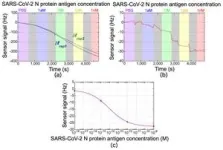(Press-News.org) The illegal wildlife trade (IWT) is a fast-growing ‘financial portfolio’ within the larger illegal, violent, parallel transnational global economy. As such, it creates state-level security and development risks, especially in source countries.
IWT is also known as wildlife trafficking, which includes the illicit trade of animals and plants, and derivative products such as pangolin scales, rhino horn, elephant ivory, lion and tiger bones, and leopard pelts.
But many highly developed countries signed up to CITES, are yet to implement a crucial legal instrument required to prosecute IWT and the associated financial flows more effectively, says Dr Cayle Lupton from the University of Johannesburg (UJ).
The same countries also happen to be signatories of the United Nations Convention against Transnational Organized Crime (UNTOC).
In addition, he says IWT law enforcement can be significantly boosted by private companies – if banks and other financial institutions start fast and efficient sharing of Anti-Money Laundering (AML) and IWT intelligence within countries and across borders.
Lupton has published the study ‘Illegal wildlife trade: the critical role of the banking sector in combating money laundering’ in the Journal of Money Laundering Control.
Lupton is a Senior Lecturer in the Department of Procedural Law, within the Faculty of Law. He is a certified anti-money laundering specialist and an attorney of the High Court of South Africa.
IWT the lesser-known precursor to money laundering
Developed countries are having mixed results in curbing transnational money laundering (ML) in general and IWT in particular, says Lupton. There are reasons for that.
“International IWT operations are difficult to detect and disrupt. Investigations are complicated by the cross-border movement of wildlife or derivatives,” says Lupton.
“Also, IWT operators use complex money laundering techniques involving large amounts of cash, and front and shell companies.
“Dealing with IWT as a national issue may not enable the identification and disruption of international trafficking networks. Cooperation at the local, regional and especially international level is imperative in this regard,” adds Lupton.
Countries making AML progress
Some countries are making significant progress in their financial systems though, says Lupton, and a good example is the Monetary Authority of Singapore (MAS).
The MAS project starts with the ‘big three’ multinational banks based in Singapore and another three multinational banks. It’s called “Collaborative Sharing of Money Laundering/Terrorism Financing (ML/TF) Information & Cases” or COSMIC for short.
Also, he says the UK and Australia are examples of countries gaining major ground in sufficiently meeting most of the recommendations from the global Financial Action Task Force to combat money laundering and other illicit financial flows.
Exploiting vulernabilities
But IWT operators exploit vulnerabilities in developed countries.
As an example, says Lupton, a surprising number of highly developed countries in Western Europe, who are signatories to CITES, still haven’t created laws to make IWT a predicate offense for money laundering.
The majority of developing countries don’t have such laws either. Also where there are ‘boots on the ground’ physically combating IWT in areas with endangered species, he adds.
Predicate offence, owners of companies
Wildlife trafficking can be made a predicate offence for money laundering in at least two different ways, says Lupton.
“Firstly, laws may refer explicitly to wildlife trafficking as a predicate offence. This is the case in the USA, where the Eliminate, Neutralize and Disrupt Wildlife Trafficking Act (END Act) allows USA prosecutors to treat wildlife trafficking as a predicate offense for money laundering.
“Secondly, AML laws may be formulated in such a way that an inference can be drawn to wildlife trafficking as a predicate offence. In these instances, provisions are usually formulated widely so that all criminal offences are regarded as predicated offences.
“In South Africa, for example, ‘money laundering’ is defined with reference to ‘unlawful activities’ which includes illegal wildlife trafficking,” he says.
In addition, FATF recommendation 24 requires countries to ensure that competent authorities have access to adequate, accurate and up-to-date information on the true owners of companies. This is required to combat the use of anonymous shell companies and other businesses to hide money laundering.
Beneficial Ownership Registries are implemented by countries to meet this recommendation.
Taking IWT seriously as trafficking
Despite wildlife trafficking growing into one of the biggest crime industries in the world, it is not prioritised in the same way as drug or people trafficking by governments and financial institutions, says Lupton.
“There is still relatively little known about the financial flows and, more specifically, the money laundering practices pertaining to IWT. Many countries still don’t treat IWT as a serious crime, especially countries that are not regarded as source or transit destinations”, he says.
Promulgating IWT as a predicate offence for money laundering, combined with legislative penalties, will increase costs for banks and other financial institutions. Particularly for their compliance programmes for AML (anti-money laundering), customer due diligence (CDD), and KYC (know your customer), if allocated realistic resources. For banks, a robust compliance programme is the cornerstone to adequately dealing with the financial flows linked to wildlife trafficking.
Says Lupton: “As IWT risks are unique, they require special resources in their mitigation, including focused training, case studies and risk indicators specific to IWT.”
First step - IWT as predicate offence
As a first step, many countries need to promulgate laws so that illegal wildlife trade becomes a predicate offence for money laundering, says Lupton.
“Banks, investment companies, real estate companies and other privately owned organisations have to start monitoring their financial systems for signs of money laundering specific to IWT,” he adds, “otherwise they may have to pay statutory penalties for non-compliance. In general, penalties drive compliance.”
“This additional AML monitoring is required, even if endangered animals are slaughtered in another country, or the derivative products will be sold in another country.”
Step two - Banks sharing intelligence
The next step is for banks to share information quickly and efficiently about transactions possibly linked to IWT.
Combining the two steps create new options to prosecute IWT, he says.
“In its 2020 report Money laundering and the illegal wildlife trade, the FATF endorses a private-to-private model of information sharing. They identify indicators to look out for, such as large cash deposits by government officials working in wildlife protection agencies, border control or customs and revenue officials.
“In my view, banks are particularly well positioned to enable cooperation between themselves in the investigation of transnational IWT financial flows.
“Banks can leverage their existing domestic, regional and international networks. If they share financial intelligence quickly and effectively, that can support the investigations of law enforcement agencies.
“Such shared information can also assist in the freezing and confiscation of laundered funds or property connected to IWT,” says Lupton.
Overall, curbing IWT not only protects endangered species and the global financial system but can also boost sustainable local development and legal job creation. Future sources of medicines, and cultural practices which regard endangered animals as sacred can also be preserved, he concludes.
ENDS
###
Notes to Editors
For more information, or to interview Dr Lupton please contact:
Ms Therese van Wyk, Research Media Liaison, University of Johannesburg, +27 71 139 8407 (Mobile and Whatsapp), theresevw@uj.ac.za.
Media Pack
Additional background on
How wildlife trafficking relates to other forms of global trafficking, especially in South Africa
Five reasons curbing IWT benefits society
URL links to the global UN / FATF reports, projects and other background information of interest.
is available in an extended version of the news release in Google Drive at:
https://drive.google.com/drive/folders/1K6E12zRsMyflL0Ll9NzUE3Fheye5OhT5?usp=sharing
Without logging in or registration on a computer.
Graphic
The graphic is available in the Google Drive media pack in more formats, including transparent backgrounds which are easier to adapt for a house style.
END
Why endangered wildlife needs AML law coverage and banks need to share IWT intelligence
More highly developed countries need to get serious about tackling money laundering linked to wildlife trafficking. They need to make wildlife trafficking a predicate offence for money laundering. Being a signatory to CITES and UNTOC is not enough.
2023-09-26
ELSE PRESS RELEASES FROM THIS DATE:
Why ecological restoration without Indigenous leadership won’t last
2023-09-26
Imagine you’re sitting in your living room on a quiet evening with your family reading a book, when suddenly, complete strangers let themselves in your front door. If that wasn’t enough of a shock, before you can even find your voice to ask who they are, they begin rearranging your furniture, painting your walls different colors, bagging up possessions that are important to you, and appear to be swapping out the food in your refrigerator.
They do not seem to mean you any harm and work with such purpose that you question yourself, wondering whether you may have forgotten ...
EWG study: Humans serve as sentinels for ‘forever chemicals’ harm to wildlife health
2023-09-26
WASHINGTON – A new paper by Environmental Working Group scientists proposes an intriguing concept: Humans can serve as a valuable resource for understanding the impact on other animal species of the toxic “forever chemicals” known as PFAS.
“PFAS pollution is not just a problem for humans,” said David Andrews, Ph.D., senior scientist at EWG. “It’s a problem for species across the globe. This new paper delves into how humans serve as an early warning system ...
How to save plants from climate change? Just ask them
2023-09-26
Redwoods and oaks that thrive on California’s coastline and coastal mountains might soon start finding it harder to survive. Human-caused climate change is altering the temperatures and rainfall patterns to which those and other trees are accustomed, and many have already been pushed close to the edge of what they can endure.
Identifying suitable new habitats will soon become a matter of life or death for some California native species, according to Lawren Sack, a UCLA professor of ecology and evolutionary biology. But if those trees could talk, where would they tell scientists they wanted to live?
In a new study, a team led by Sack and other UCLA biologists ...
Study finds senescent immune cells promote lung tumor growth
2023-09-26
ROCHESTER, Minn. — Macrophages are a type of white blood cell that are among the body's first line of defense against infection. In addition to killing harmful microorganisms, macrophages typically can initiate a response against tumors. However, macrophages, like other cells, can enter a state called senescence, which is linked to aging, disease and multiple physiological problems.
When cells become senescent, they stop dividing, but they do not die and are not always eliminated from the body. They can linger and accumulate in tissues and may ...
Study examines benefits and obstacles of library data storytelling
2023-09-26
The effective use of data storytelling could positively impact public library managers' approaches to data collection and their advocacy for libraries, according to Kate McDowell, associate professor in the School of Information Sciences at the University of Illinois Urbana-Champaign. However, cultural roadblocks to data storytelling must be addressed for the process to be successful, McDowell discovered in a recently completed study.
McDowell discusses her findings in the Public Library Quarterly article, "Library Data Storytelling: Obstacles and Paths Forward." This work is the result of her research project, "Data ...
Cost of living crisis set to cut UK lives short and significantly widen wealth-health gap
2023-09-26
The proportion of people dying before their time (under the age of 75) is set to rise by nearly 6.5%---30 extra deaths/100,000 of the population annually—with those in the most deprived households experiencing a rate 4 times that of the least deprived.
In recent years, the UK has experienced levels of inflation not seen since the 1970s as a result of the war in Ukraine, COVID-19, Brexit and fiscal policy, note the researchers. Poorer households have borne the brunt as they spend a larger proportion of their income on energy, the cost of which has soared.
In a bid to mitigate the impact, the UK government introduced a universal Energy Price Guarantee (EPG) and a series of more targeted ...
Flawed body of research indicates true ‘long COVID’ risk likely exaggerated
2023-09-26
Overly broad definitions, a lack of appropriate, or any, comparison groups, among other things, in studies looking at the incidence, prevalence, and control of the condition—epidemiology—have distorted the risks, say the researchers.
This is further compounded by inclusion of poorly conducted studies into systematic reviews and pooled data analyses that end up overstating the risk yet again, they add.
The likely consequences of this include, but aren’t limited to, increased public anxiety and healthcare spend; misdiagnoses; ...
Wealthier kids in UK may have experienced steepest fall in mental health during pandemic
2023-09-26
The findings confound predictions in some quarters that disadvantaged children, who had worse mental health to start with, would be hardest hit. But even if child mental health has become more equal, it worsened, overall, following the pandemic, emphasise the researchers.
There is some evidence that declines in mental health during the COVID-19 pandemic may have been greatest among younger people, say the researchers, but the impact on inequalities in child mental health isn’t clear.
To explore this further, they analysed 16,361 parental observations of 9272 children in the nationally ...
Stem cell therapy can safely slow progression of relapsing-remitting MS
2023-09-26
Autologous haematopoietic stem cell transplantation, or aHSCT for short, is usually used to treat blood cancers, and involves harvesting stem cells from the person’s own bone marrow or blood followed by chemotherapy and antibody treatment.
Emerging evidence indicates that it is suitable for treating relapsing-remitting MS— characterised by distinct inflammatory episodes that cause varying degrees of residual disability. But aHSCT has yet to be included in most national clinical guidelines.
The researchers therefore ...
NASA’s Interstellar Mapping and Acceleration Probe passes system integration review
2023-09-26
The Interstellar Mapping and Acceleration Probe (IMAP) marked the completion of an important step on the path to spacecraft assembly, test, and launch operations this week at Johns Hopkins Applied Physics Laboratory (APL) in Maryland.
The IMAP team met with a review panel to evaluate the plan for integrating all systems onto the spacecraft, such as the scientific instrumentation, electrical and communication systems, and navigation systems. Successful completion of this System Integration Review (SIR) means that the project can proceed with assembling and testing the spacecraft in preparation ...
LAST 30 PRESS RELEASES:
Scientists discover why we know when to stop scratching an itch
A hidden reason inner ear cells die – and what it means for preventing hearing loss
Researchers discover how tuberculosis bacteria use a “stealth” mechanism to evade the immune system
New microscopy technique lets scientists see cells in unprecedented detail and color
Sometimes less is more: Scientists rethink how to pack medicine into tiny delivery capsules
Scientists build low-cost microscope to study living cells in zero gravity
The Biophysical Journal names Denis V. Titov the 2025 Paper of the Year-Early Career Investigator awardee
Scientists show how your body senses cold—and why menthol feels cool
Scientists deliver new molecule for getting DNA into cells
Study reveals insights about brain regions linked to OCD, informing potential treatments
Does ocean saltiness influence El Niño?
2026 Young Investigators: ONR celebrates new talent tackling warfighter challenges
Genetics help explain who gets the ‘telltale tingle’ from music, art and literature
Many Americans misunderstand medical aid in dying laws
Researchers publish landmark infectious disease study in ‘Science’
New NSF award supports innovative role-playing game approach to strengthening research security in academia
Kumar named to ACMA Emerging Leaders Program for 2026
AI language models could transform aquatic environmental risk assessment
New isotope tools reveal hidden pathways reshaping the global nitrogen cycle
Study reveals how antibiotic structure controls removal from water using biochar
Why chronic pain lasts longer in women: Immune cells offer clues
Toxic exposure creates epigenetic disease risk over 20 generations
More time spent on social media linked to steroid use intentions among boys and men
New study suggests a “kick it while it’s down” approach to cancer treatment could improve cure rates
Milken Institute, Ann Theodore Foundation launch new grant to support clinical trial for potential sarcoidosis treatment
New strategies boost effectiveness of CAR-NK therapy against cancer
Study: Adolescent cannabis use linked to doubling risk of psychotic and bipolar disorders
Invisible harms: drug-related deaths spike after hurricanes and tropical storms
Adolescent cannabis use and risk of psychotic, bipolar, depressive, and anxiety disorders
Anxiety, depression, and care barriers in adults with intellectual and developmental disabilities
[Press-News.org] Why endangered wildlife needs AML law coverage and banks need to share IWT intelligenceMore highly developed countries need to get serious about tackling money laundering linked to wildlife trafficking. They need to make wildlife trafficking a predicate offence for money laundering. Being a signatory to CITES and UNTOC is not enough.



